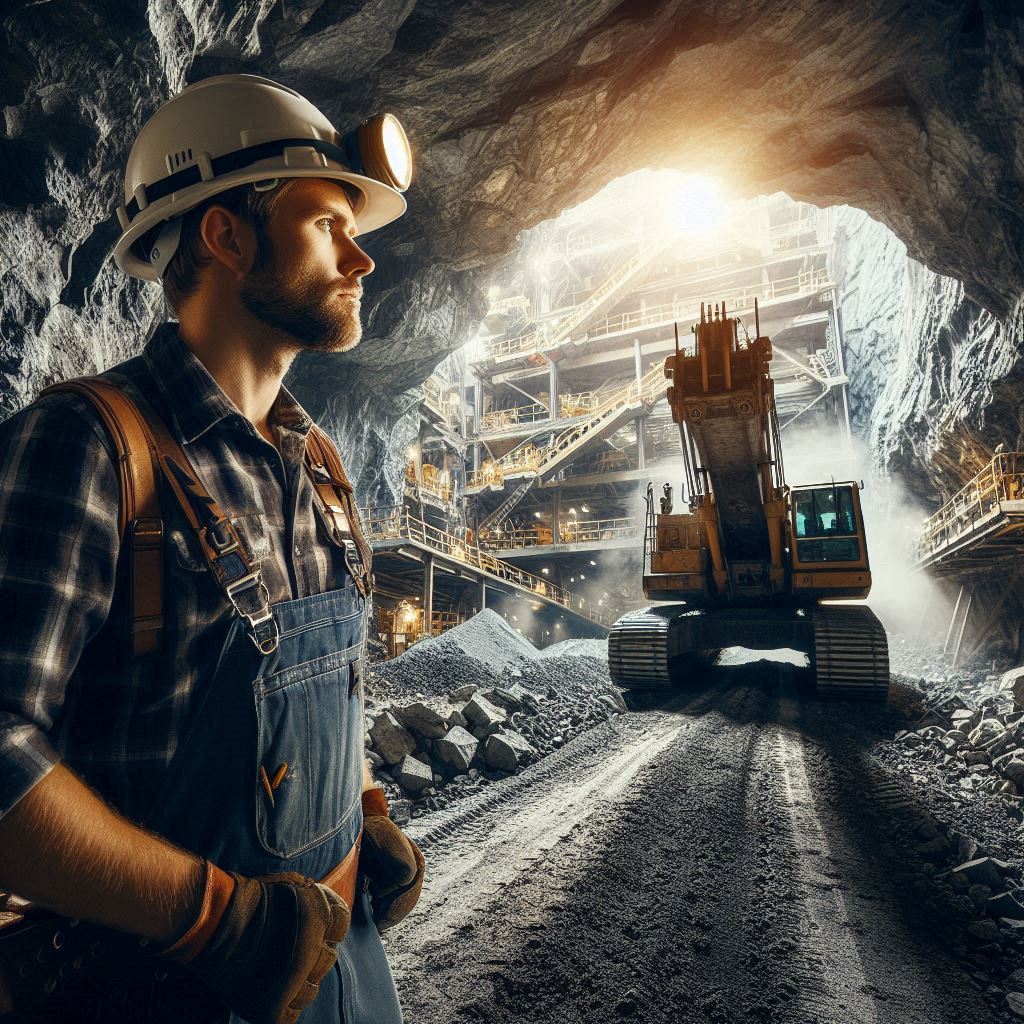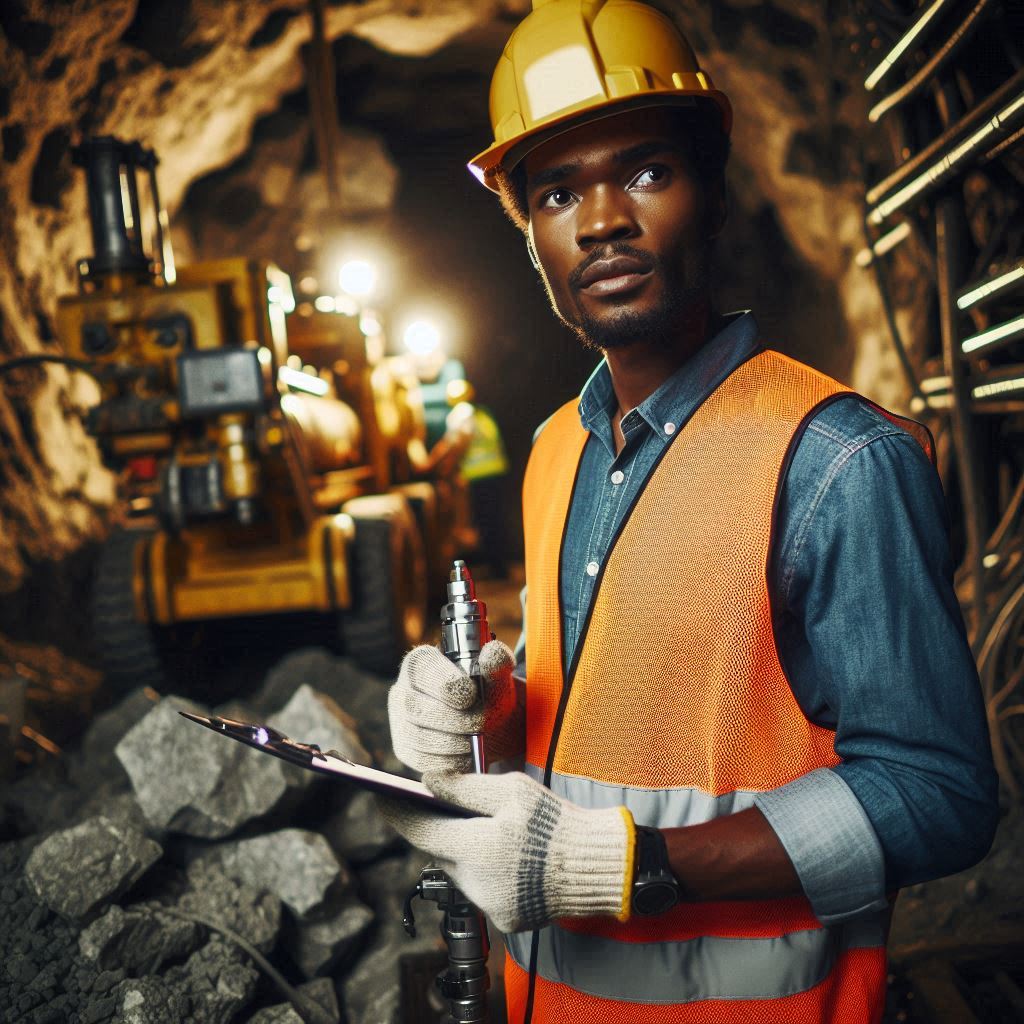Introduction
Crafting a standout resume is essential for mining engineers seeking career opportunities.
A resume is your first impression on potential employers, and it must showcase your skills, experience, and achievements effectively.
In the competitive mining industry, a well-written resume can make all the difference between landing an interview and being overlooked.
Brief Overview of the Importance of a Well-Written Resume for Mining Engineers
A well-crafted resume serves as a critical marketing tool for mining engineers.
It highlights your qualifications, relevant experience, and technical skills, positioning you as a strong candidate.
Employers in the mining industry look for individuals who can demonstrate their expertise in areas such as mineral extraction, safety protocols, and project management.
Your resume should clearly articulate your proficiency in these areas, providing concrete examples of your accomplishments.
A well-written resume not only showcases your technical abilities but also reflects your professionalism and attention to detail, which are highly valued traits in the mining sector.
Competitive Nature of the Job Market in the Mining Industry
The mining industry is known for its competitive job market, with numerous qualified candidates vying for limited positions.
This competition underscores the importance of a compelling resume that sets you apart from other applicants.
Employers receive numerous resumes for each job opening, so yours needs to capture their attention quickly.
To achieve this, focus on presenting your most relevant experience and achievements in a clear and concise manner.
Tailor your resume to the specific job you are applying for, emphasizing the skills and experiences that match the job description.
Additionally, incorporate industry-specific keywords to pass through Applicant Tracking Systems (ATS) and ensure your resume reaches human eyes.
By doing so, you increase your chances of standing out in a crowded job market and securing an interview.
In a nutshell, a winning mining engineer resume is crucial for making a strong impression on potential employers in a competitive job market.
By highlighting your qualifications, relevant experience, and technical skills, you can position yourself as a top candidate.
Remember to tailor your resume to the specific job, use industry-specific keywords, and present your achievements clearly.
A well-written resume not only showcases your expertise but also reflects your professionalism and attention to detail, increasing your chances of landing the job you desire.
Research and Gather Information
Begin by conducting thorough research to gather relevant information for your mining engineer resume.
Start by looking into the mining industry to understand the latest trends, technologies, and challenges.
This helps you align your resume with current industry standards.
Additionally, research various mining companies to gain insights into their specific needs and preferences.
This will enable you to tailor your resume for each job application effectively.
Utilize professional networks and industry publications to gather information on successful mining engineer resumes.
The more detailed your research, the stronger your resume will be.
Key Skills and Qualifications Necessary for a Mining Engineer Position
Identifying the key skills and qualifications necessary for a mining engineer position is crucial.
Core skills include problem-solving, analytical thinking, and project management.
Technical skills, such as proficiency in mining software and understanding of geological principles, are also essential.
Additionally, communication and teamwork abilities are highly valued in this field.
Make a comprehensive list of these skills and qualifications, ensuring you match them with your own experiences.
Highlighting these skills on your resume will demonstrate your suitability for the role and catch the attention of hiring managers.
Review Job Descriptions and Requirements from Various Mining Companies
Reviewing job descriptions and requirements from various mining companies is a vital step.
Look for common themes and specific qualifications that employers seek.
Pay attention to the language used in these descriptions, as mirroring this in your resume can make a positive impact.
Note the preferred qualifications, such as certifications or advanced degrees, and ensure your resume reflects these if applicable.
Analyzing job descriptions helps you understand what employers are looking for and allows you to craft a resume that meets their expectations.
Gather Information on Your Own Experience, Education, and Accomplishments
Gathering information on your own experience, education, and accomplishments is the next step.
List all relevant work experiences, focusing on your roles, responsibilities, and achievements.
Include specific projects you have worked on, highlighting your contributions and the outcomes.
Detail your educational background, mentioning degrees, certifications, and any specialized training.
Additionally, include any professional memberships, publications, or presentations related to mining engineering.
This comprehensive collection of information will serve as the foundation for your resume, showcasing your qualifications and achievements.
Creating a winning mining engineer resume requires diligent research and careful planning.
By gathering information, identifying key skills, reviewing job descriptions, and detailing your own experiences, you can craft a resume that stands out.
Tailor each resume to the specific job application, ensuring it aligns with the employer’s needs.
A well-researched and thoughtfully crafted resume will increase your chances of securing a mining engineer position and advancing your career in the industry.
Read: Biomedical Engineer: Working in Healthcare Tech
Formatting Your Resume
Choose a Clean and Professional Format
A clean and professional resume format is crucial.
Choose a layout that is easy to read and visually appealing.
Use a standard font like Arial or Times New Roman in size 10-12.
Avoid using excessive colors or graphics, as they can distract from your qualifications.
Ensure there is plenty of white space to make the document easy to scan.
Margins should be one inch on all sides, and sections should be clearly defined.
This approach ensures your resume looks polished and professional, making a strong first impression on hiring managers.
Use Clear Headings and Bullet Points to Organize Information
Clear headings and bullet points improve the readability of your resume.
Start with a strong header that includes your name and contact information.
Follow with sections for your professional summary, work experience, education, skills, and certifications.
Use bold or italicized headings to distinguish each section.
Bullet points help break down information into digestible pieces, making it easier for recruiters to quickly find key details.
For example, under work experience, list your job responsibilities and achievements using bullet points.
This structure allows for quick scanning, which is essential given the limited time recruiters spend on each resume.
Tailor the Resume to Highlight Relevant Experience in the Mining Industry
Tailoring your resume to highlight relevant experience is vital.
Customize your resume for each job application by emphasizing experience that aligns with the job description.
Use industry-specific keywords that match the skills and qualifications mentioned in the job posting.
In your professional summary, mention your years of experience in mining engineering and key competencies like project management, safety compliance, and technical expertise.
In the work experience section, detail specific projects you have worked on, such as mineral exploration, mine design, or equipment maintenance.
Quantify your achievements with metrics, such as increased production efficiency or cost savings.
Highlighting relevant experience demonstrates that you are a strong fit for the role.
Final Touches and Proofreading
After formatting, organizing, and tailoring your resume, ensure it is error-free.
Proofread meticulously to eliminate typos and grammatical errors.
Consider using online tools or asking a colleague to review your resume for additional feedback.
A polished, error-free resume reflects your attention to detail and professionalism.
Also, save your resume as a PDF to preserve formatting and ensure it can be opened on any device.
This final step ensures your resume is ready to impress potential employers and help you secure an interview.
By following these guidelines, you can create a compelling mining engineer resume that stands out.
A well-crafted resume showcases your qualifications and increases your chances of landing the job you want in the mining industry.
Read: Biomedical Engineering: Industry Outlook 2024
Summary Statement
In crafting a winning mining engineer resume, your summary statement plays a crucial role in capturing the attention of potential employers.
This section should succinctly highlight your skills and experiences while showcasing your passion for the mining industry and outlining your career goals.
Craft a Strong Summary Statement
- Begin your resume with a powerful summary statement that effectively summarizes your qualifications and sets the tone for the rest of your document.
- Highlight your key skills, such as geological modeling, mine planning, resource estimation, and project management, to demonstrate your expertise in the field.
- Showcase your experience in mining operations, underground and surface mining techniques, and environmental compliance to showcase your practical knowledge.
Highlight Your Passion for the Mining Industry
- Express your passion for the mining industry by discussing your interest in sustainable mining practices, innovative technologies, and safety protocols.
- Demonstrate your commitment to continuous learning and professional development by mentioning any relevant certifications, courses, or memberships in industry organizations.
- Showcase your enthusiasm for solving complex problems and contributing to the growth and success of mining projects through your expertise and dedication.
Keep it concise and impactful
- Clearly state your career goals in the mining industry, whether you aspire to become a senior mining engineer, mine manager, or specialize in a particular aspect of mining.
- Articulate how the role you are applying for aligns with your long-term career objectives and how you plan to contribute to the success of the organization.
- Emphasize your motivation to take on new challenges, embrace leadership opportunities, and make a positive impact on the mining industry through your work.
Overall, your summary statement should be concise, impactful, and tailored to the specific job you are applying for.
By effectively showcasing your skills, passion for the industry, and career goals, you can create a winning mining engineer resume that stands out to potential employers.
Read: Biomedical Engineering: Research and Development

Work Experience
List Relevant Work Experience in the Mining Industry
Your resume’s work experience section should highlight your expertise in the mining industry.
Start by listing your most recent job first, then work backwards.
Include the job title, company name, location, and dates of employment.
Be specific about your roles and responsibilities.
For example, “Senior Mining Engineer, XYZ Mining Company, Denver, CO, January 2018 ‘ Present.
” This provides a clear timeline of your career progression and showcases your dedication to the field.
Include Specific Tasks, Achievements, and Responsibilities
Detailing specific tasks, achievements, and responsibilities in your previous roles is crucial.
Instead of writing generic descriptions, focus on your actual contributions.
Mention projects you led, challenges you overcame, and the results of your work.
For example, “Led a team of engineers in designing a new mine layout, resulting in a 15% increase in ore extraction efficiency.
” Quantifying your achievements demonstrates your effectiveness and impact.
Highlighting responsibilities like “managed daily operations of the mining site” or “developed safety protocols that reduced accidents by 20%” can set you apart from other candidates.
Use Action Verbs to Demonstrate Your Impact in Previous Roles
Action verbs bring your resume to life and clearly illustrate your contributions.
Use verbs like “designed,” “implemented,” “optimized,” “supervised,” and “coordinated” to describe your responsibilities and achievements.
For example, “Implemented a new ventilation system that reduced energy costs by 10%.
” Action verbs make your resume dynamic and engaging, showing potential employers that you are proactive and results-oriented.
Instead of saying, “Was responsible for training new employees,” say, “Trained new employees on safety procedures, improving compliance rates by 25%.
” This not only highlights your role but also emphasizes the positive outcomes of your efforts.
In review, crafting a compelling work experience section involves listing relevant roles, detailing specific tasks and achievements, and using powerful action verbs.
By doing so, you can create a resume that stands out in the competitive mining industry.
Read: How Agricultural Engineers Improve Crop Yields
Transform Your Career Today
Unlock a personalized career strategy that drives real results. Get tailored advice and a roadmap designed just for you.
Start NowFind Out More: Skills Needed for a Successful Chemical Engineer
Education and Certifications
Include Your Educational Background in Mining Engineering or Related Fields
Your resume must showcase your educational background in mining engineering.
Start with your highest degree first, listing your degree, the institution, and the graduation date.
If you graduated with honors, mention it to stand out.
For example, “Bachelor of Science in Mining Engineering, University of XYZ, graduated with honors, May 2022.
” Including your GPA is optional but can be beneficial if it‘s high.
Additionally, mention any relevant minors or specializations you pursued.
This helps demonstrate a focused academic path, which is crucial for potential employers.
Any Certifications or Training Relevant to the Mining Industry
Certifications and specialized training are crucial for a mining engineer’s resume.
List any certifications you have obtained that are relevant to the mining industry.
This includes certifications in mine safety, explosives handling, and any software proficiency.
For example, “Certified Mine Safety Professional (CMSP), Mine Safety Institute, 2021.
” Include the institution or organization that awarded the certification and the year it was obtained.
If you have attended workshops, training programs, or industry seminars, list these as well.
This shows a commitment to ongoing professional development and staying updated with industry standards.
Any Relevant Coursework or Research Projects
Detailing relevant coursework and research projects can strengthen your resume.
Mention specific courses that provided you with practical skills and knowledge applicable to mining engineering.
For instance, “Completed coursework in Advanced Mine Ventilation, Mineral Processing, and Surface Mining Techniques.
” If you participated in significant research projects, provide brief descriptions.
Highlight the objectives, methodologies, and outcomes of these projects.
For example, “Conducted research on sustainable mining practices, focusing on reducing environmental impact, resulting in a published paper in the Journal of Mining Science.
” This demonstrates your hands-on experience and your ability to apply theoretical knowledge to real-world challenges.
By clearly outlining your educational background, certifications, and relevant coursework, you present yourself as a well-rounded and highly qualified candidate.
This structured approach ensures that your resume is comprehensive and tailored to the expectations of potential employers in the mining industry.
Skills and Qualifications
Technical Skills
As a mining engineer, it is essential to possess a range of technical skills to excel in the field.
Proficiency in mining software such as MineSight, Surpac, and Vulcan is crucial for efficient project management and data analysis.
Additionally, knowledge of geotechnical engineering principles and modeling software like FLAC3D is beneficial for designing safe and cost-effective mining operations.
Familiarity with computer-aided design (CAD) programs like AutoCAD or SolidWorks is also advantageous for creating detailed mining plans and layouts.
Moreover, expertise in using specialized mining equipment such as drills, explosives, and haul trucks is necessary for successful on-site operation and production.
Soft Skills
Aside from technical skills, mining engineers must also possess strong soft skills to effectively communicate with team members, stakeholders, and clients.
Problem-solving skills are essential for identifying and resolving issues that may arise during mining projects, such as equipment failures or unexpected geological conditions.
Teamwork skills are crucial for collaborating with geologists, surveyors, and miners to ensure project success and safety.
Communication skills, both verbal and written, are necessary for presenting project proposals, reports, and updates to management and clients in a clear and concise manner.
Quantify your skills with examples of how they were used in previous roles
Quantifying your skills with real-world examples can strengthen your resume and demonstrate your capabilities to potential employers.
For instance, you could highlight how your proficiency in MineSight software enabled you to optimize ore grade estimation and increase resource recovery rates by 10% in a previous role.
Similarly, you could showcase how your problem-solving skills helped you identify a cost-saving solution for reducing drill maintenance downtime by 15%.
Additionally, you could provide examples of your teamwork skills by detailing how you successfully coordinated with a multidisciplinary team to implement a new mine ventilation system ahead of schedule and under budget.
Uncover the Details: Telecommunications Technician: Project Management Skills
Uncover the Details: Geotechnical Engineering: Industry Challenges
Conclusion
The Importance of a Well-Written Mining Engineer Resume
A well-written mining engineer resume is crucial for standing out in the competitive job market.
It highlights your skills, experiences, and achievements, showcasing your qualifications to potential employers.
A polished resume demonstrates your professionalism and attention to detail, essential traits for any engineering role.
Employers often receive numerous applications, and a compelling resume can make the difference between getting noticed or being overlooked.
By investing time in crafting a strong resume, you position yourself as a top candidate for the role.
Encouraging the you to Review and Revise Their Own Resume Based on the Outlined Steps
Take the time to review and revise your resume using the outlined steps.
Start by ensuring your contact information is up-to-date and easy to find.
Tailor your resume to the specific job you are applying for, emphasizing relevant experiences and skills.
Use action verbs and quantify your achievements to demonstrate your impact in previous roles.
Include a professional summary that concisely presents your qualifications.
Proofread your resume carefully to avoid any errors.
Implementing these strategies will enhance the effectiveness of your resume.
The Impact a Strong Resume Can Have on Job Search Success
A strong resume significantly impacts your job search success.
It serves as your first impression to potential employers, highlighting your suitability for the role.
A well-crafted resume can lead to more interview opportunities, increasing your chances of securing the job.
It showcases your professionalism, dedication, and ability to communicate effectively.
Employers are more likely to consider candidates with resumes that clearly demonstrate their value.
By investing effort into creating a standout resume, you enhance your prospects in the job market.




